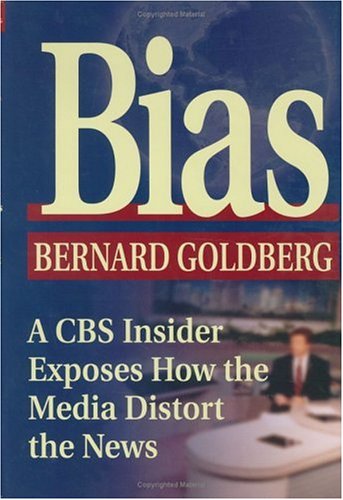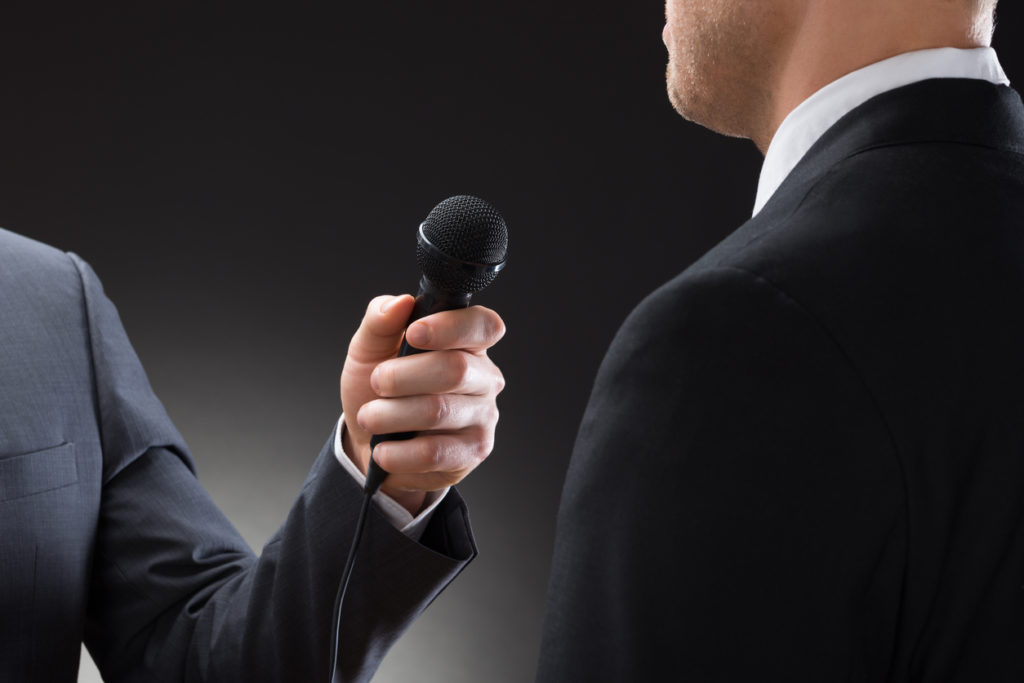My Take: Is The Media Biased?
When people find out that I’m a former journalist, they regularly want to know whether I think the media is biased (they presumably ask the question because they believe the media are biased).
The answer isn’t as straightforward as they think. In this article, I’ll share my thoughts on this question – and I invite you to leave your thoughts in the comment section below.
I usually answer the “Is the media biased?” question with a three-part, “yes, but” answer.

Many people believe the media have a left-wing bias. Are they right?
1. Yes, There’s a Left-Leaning Bias: Numerous surveys over the past decade have found an undeniable left-leaning bias in the mainstream media.
In my experience working in newsrooms at ABC News and CNN, I’ve observed few journalists purposely injecting their personal political biases into their reporting. Their biases work in more subtle (and often unconscious) ways, helping to guide their decisions regarding which stories to cover and which “experts” to believe. The environmental whistleblower, for example, will usually be regarded more credibly than the corporate CEO.
In recent years, the right-wing media have gained significant traction. Bias is no longer the sole province of left-leaning news organizations.
2. That Bias Is Over-Stated For Political Purposes
In basketball, there’s an expression called “working the ref.” When the referee calls a foul on a player, the player protests the call – even if it’s pretty clear it was a foul. The player lodges the complaint in the hopes that the referee will think a little bit harder before calling a similar foul later in the game.
Conservatives have worked the media “ref” for years; by doing so, they have made mainstream newsrooms more sensitive to potential allegations of bias. (To be clear, conservatives have lodged some very legitimate complaints against mainstream coverage – their complaints often go beyond merely working the ref.)
But I often find that complaints of bias are more reflexive than substantive. For example, Newt Gingrich is now facing tough media scrutiny regarding millions of dollars of paid consulting fees from unpopular government-backed mortgage lender Freddie Mac. What he dismisses as a story driven by media bias is actually a fair and accurate story worth reporting. Nonetheless, he’ll “work the ref” and blame the media for running the story, possibly blunting the story’s impact with his supporters.
3. The Primary Media Bias Is Not Ideological
I’ve long thought that the dominant media bias is not ideological, but toward local, inexpensive, tawdry, and visually compelling stories.
As examples:
- There are two stories of equal news value. One is in New York City; the other is in Lincoln, Nebraska. National news organizations will more likely cover the NYC story, since they have news bureaus and dozens of reporters standing by in Manhattan, whereas sending a crew to Lincoln would require additional time and money.
- There are two political scandals of equal significance. One involves a detailed financial scandal that is difficult to understand; the other involves a sex scandal. National news organizations will likely give disproportionate coverage to the sex scandal, as the visuals are better and the tawdry nature of the story is more likely to attract an audience.
As a media trainer, I often tell our clients that while all of the above might be true, it shouldn’t prevent spokespersons from being able to accomplish their media goals. We can’t change the biases that drive the media – but by understanding them and using that knowledge to influence your media strategies, you can usually overcome them.
Do you agree or disagree with my conclusions? Please leave a comment below.



I agree with your analysis, except that there is a left leaning bias. It is hard to use actual data or examples because bias is hard to measure. Here is what we do know:
Surveys show that journalists tend to be more liberal than conservative. (It appears that liberal folks have a greater desire to have the public be fully informed.)
The media are mostly owned by large corporations, which favor a conservative agenda.
If you wanted to exert a bias in the media, would you rather be a worker or an owner?
When the issues are big and important, the conservative media bias shows more strongly. For example, look at the role of the media in the run-up to the Iraq war.
Craig,
You raise a good point about corporate ownership, and perhaps my answer needs to become a four-part answer instead of a three-part one. Thank you for adding that view to my story.
Best wishes,
Brad
I find that the visual stories tend to naturally lean toward more social programs and increased role of government. What perspective is easier and more compelling to illustrate: lower taxes (the person who feels they should keep more of their hard-earned money) or more government programs (the person who has to choose between paying rent and feeding the family)?
Most people who have to use social programs have very dramatic stories to tell.
Thanks for the Lincoln, Neb. shout out!
Alexis – You’re welcome! Lincoln (and other cities of equivalent size) deserves media coverage for newsworthy stories!
Happy holidays, and thanks for reading.
Brad
Brad these are spot on and thoughtful – hadn’t seen it that way before! Rings very true to me as a former reporter turned PR guy. I’ve always just assumed everyone knows reporters are biased – we’re human beings, after all. I think the key is knowing that a “good” reporter doesn’t let his or her personal feelings directly show up in a story, though, as you point out, it might color who they give the most attention to, who they give more weight to as sources, etc.
There are two point I would add:
1. When addressing ownership of media, do not assume that big business or finance is conservative. Dominant corporations are not really free market, they are anti-competitive. When you assume that conservatives are blindly and universally pro-business, or that all capital is pro-market, you demonstrate your fundamental unfamiliarity with the range of conservative thinking.
2. Liberal bias is magnified in media (and social science education) by the fact that it is so well known. How many conservatives think they would be accepted in the mainstream media? Few. So those who work in the big media only know conservatives as an ideological category. They don’t openly discuss news stories with them,since there are so few in the newsroom, so they never know what conservatives think. They imagine what conservatives think, and use that instead. This leads to amazingly consistent errors of assumption on the part of the media, and consequent eye-rolling exasperation on the part of conservatives.
Conservative media tends to be more open and aware of its bias. (“Fair and Balanced” not withstanding) Conservative media also understands liberal thinking better. We learned about liberalism from liberal college professors and liberal media. The same folks who attempted to explain conservatism to the media.
When we study politics, my students can’t tell if I am liberal or conservative. Most of them say I sound convincing whichever view I am explaining. That would be tough if I had not had so many liberal professors. I am not sure my colleagues could give Reaganism or Austrian economics the same treatment.
I really appreciate your site. I may steal some of your public speaking tips for my students- with attribution, of course.
A conservative in education.